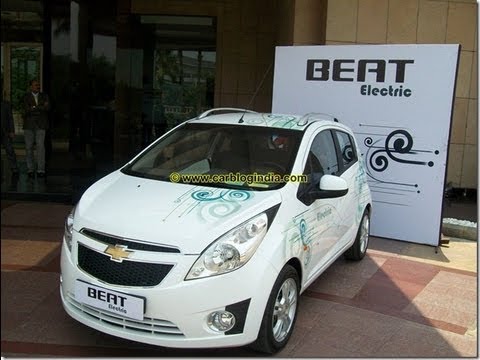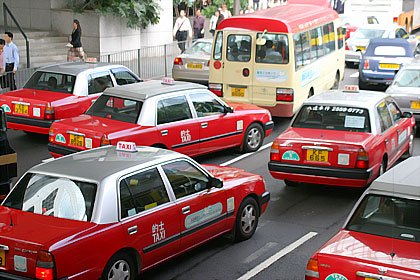#LPG
Ford's Transit Taxi To Connect Passengers Worldwide
With a few successes under Ford’s strap with the American buckle, the Blue Oval made be known its aspirations to go for the world championship belt in ferrying drunk revelers and harried air travelers with their Transit Connect Taxi in its debut in Hong Kong.
Ford F-150 Now Available With CNG/LPG Prep Package, Most Ford Trucks Now Cooking With Gas
Starting with the 2014 model year, for the first time Ford will be offering F-150 buyers the option of running on compressed natural gas or liquid propane gas in addition to gasoline. Automotive News reports that interested can spec a F-150 with the 3.7 liter V6 engine, and then receive a factory-installed CNG/LPG prep package that includes hardened valves, valve seats, pistons and rings. The actual conversions would be done by six CNG/LPG conversion companies that have been certified by Ford as “qualified vehicle modifiers”. As long as the conversion is done by one of those six firms, Ford will honor all factory warranties on the engine. Depending on the size of the fuel tank that’s installed, the cost of the conversions will be between $8,000 and $11,000 a vehicle, but running on gas can be significantly cheaper than running on gasoline or diesel, and the cost of the conversion can be more than paid back over the life of the vehicle.
Ask An Engineer: Natural Gas For Dummies
Westport Innovations has just signed a second deal with General Motors to produce light duty natural gas engines, and it’s probably not the last time we’ll be seeing these kind of partnerships forming. Natural gas vehicles have been explored previously on TTAC, but the technology hasn’t been fully explored in-depth, aside from some well-informed comments in various articles.
Low Natural Gas Prices Aren't Spurring Demand For NGVs
Even with gasoline prices reaching higher and higher, and natural gas prices at decade lows, consumers are doing as little as possible to adopt natural gas vehicles. As investment blog Seeking Alpha found out, the answer isn’t so complex.
Chevy Beats The Gas Prices Blues In India With LPG, EV City Car
Speaking of GM’s future lineup, there’s no sign in GMI’s 2013 projected lineup of the on-again-off-again Spark city car (A-Segment) that we had heard would be here now. Hell, they’ve had the cupholders ready since 2009. So what’s the Spark up to?
Are Europe's Diesel Days Drawing To A Close?
Diesel drivetrains have long been a crucial component to the European market’s forbidden-fruit appeal for American enthusiasts, ranking right up with station wagons and manual transmissions on the list of under-offered features in the American market. But there are signs now that Europe’s longtime infatuation with oil-burners might be drawing to a close (and not just for biodiesel). The Telegraph reports that Europe-wide diesel market share has fallen from 52 percent to 46 percent in the last 12 months, with the UK’s share dropping from about 43 percent to about 41 percent. Much of this trend is being driven by growth in the low-cost car segment, where the higher cost of diesels make them less competitive. Fears of higher repair costs for more complicated clean-diesel drivetrains and a relative undersupply of diesel fuel aren’t helping either. And just as diesel is faltering in its most important consumer market, the EU is eying a tax increase that Reuters UK says “could boost demand for gasoline at the expense of diesel.”
Hong Kong Battles Strange Ghosts In A Bottle
While the world is trying to come to grips with pedal-gate, tiny Hong Kong is attempting an exorcism of its own gremlins: 18,000 (mostly Toyota Crown) taxis and 2,000 minibuses are propelled by LPG, liquefied petroleum gas. The gas is lugged around in a large tank housed in the trunk of the taxis, much to the chagrin of suitcase-schlepping tourists. The real problem is: The LPG mobiles are breaking down in wholesale fashion, China Daily reports. Hundreds a month.
The Hong Kong government set up a special task force to investigate. Nobody is blaming Toyota – this time.



















Recent Comments